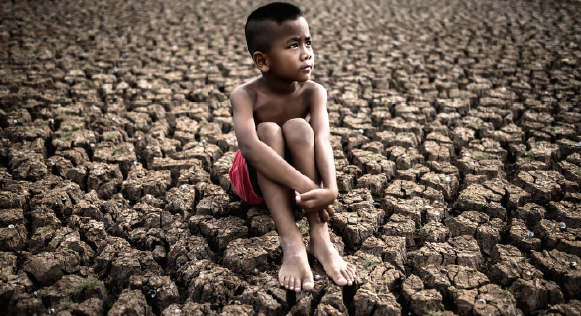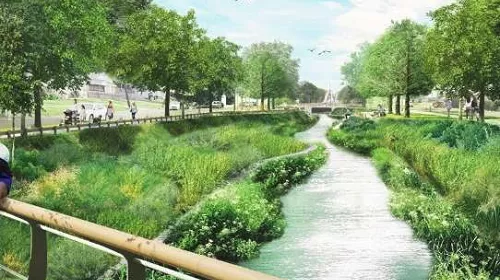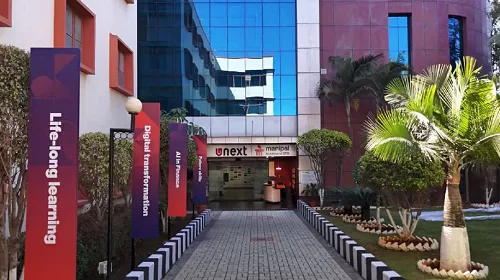Laxmi Kant Pathak, director-operations and BU head-surface water and irrigation at Zetwerk speaks
About the challenges affecting the water sector both in terms of policies and infrastructure.
- Considering Zetwerk is a major EPC player in the water sector, in India, what are your views on the infrastructure that is present, in the water sector, in India?
In the last 35 years, India has seen large demographic movement from rural to urban. As a result of this we can see some infrastructure in the urban areas but considering the concentration of people, it is not sufficient with the minimum standards. Also, we don’t have all the facilities in all the cities. Many times we concentrate on WTP but where is the sewage management? If the sewage plant is there, is it working? On the contrary rural areas are worst hit. I believe, that there is almost no
Infrastructure for clean water. Also, we lack in terms of technology upgrades. Considering all this we need to revive our older projects, build technology equipped infrastructure and maximize the
Manufacturing and building of these facilities for all. So as far as infrastructure in considered we have to develop and deliver end-to-end solutions. I sincerely believe, we at Zetwerk are delivering our best in all this, with specific focus on rural areas.
- It is a known fact that India is one of the most waters stressed nations, in the world, what in your view does India lack—infrastructure, policy direction or the necessary systems?
Yes, we are a water stressed nation, but we need to dive deeper into our analysis because we are not water scared country. We have ample amount of rainfall, ample number of waterbodies and multiple sources for water. However, we lack in water management. So as far as focus of Government from the last 5-10 years has shown that their interest is in providing water facilities to every household, and with the special governing body like the Ministry of Jal Shakti, we see a very positive policy driven initiatives from the Government side. However, we also need to understand that the policy driven initiatives won’t fulfil the objectives to the fullest. We as a country need to bring behavioural changes among individuals as well.
- Could you throw some light on the major challenges that you face, especially in India when it comes to implementing irrigation projects?
The ecosystem required for development of water in infrastructure projects is diverse and it throws many challenges. These would include areas like land acquisitions, payments with regard to compensation are some of them. Also considering that Indian agriculture, where there are two crops in a year, it is very hard for us to go on the field and execute the irrigation network during the crop cycle. As a result, we only get four-five months a year to execute the project on the ground. We need to hold sufficient resources as well as micro-plans in all our operations. Thanks to the focus of Zetwerk wherein an in-house manufacturing capability takes care of replacement for the field activity.
- Considering the agriculture sector is the major consumer of water and that Zetwerk is a major player in creating the necessary infrastructure, through its irrigation projects. How can water use efficiency be increased in the Indian agricultural sector?
We have to move towards closed or piped irrigation to reduce the evaporating losses initially. Further technology is the ultimate answer for enhancing the use efficiency. Optimal distribution and usage of water as an irreplaceable resource is possible with few of the distribution and flow management tools such as DMS data management and monitoring tools, distribution analytics and so on. At a times, the use of drip-irrigation by farmers will also increase the efficiency of the overall irrigation systems. Apart from this we also need to have intra-zonal distribution strategy where we can utilize water from surplus areas to areas where water is scarce. (Here interlinkage of rivers and canals is one of the promising strategies we have on the table)
- What is the kind of problems/challenges that you face, when Zetwerk undertakes projects that aim to provide clean drinking water?
India as a nation has seen surge in water strategies and water projects. The industry is overloaded with work and opportunities. But the policies are basically based on the conventional ways of execution which is time consuming, considering the involvement of multiple agencies, socio-political
Elements and so on. Now since Network’s focus is on the rural water mission, we come across lot of logistics and operation-based challenges. But as experts of replacing field operations more by in-house casting and building capacities and we are trying to overcome them in best possible way.
- Zetwerk has experience of undertaking has experience of undertaking projects that provide clean drinking water in 4-5 states. Are the challenges that you face across states similar, or do they vary across states?
Every geography has its own challenges as well as they offer different advantages. Setting foot in a new territory gives us a bunch of opportunities, learnings, and failures as well. Along with that every state has some similar problems which an EPC industry faces since its inception.
- Considering India is one of the most water stressed nations in the world, how difficult is it to provide clean water to the relevant stakeholders?
We need to reach diverse parts of the country where the source of water comes in different forms. Such as the sources of water are naturally available, manmade, water abundant, water scarce, water with non-potable quality and so on. Treatment of this water, storage at a certain height and distribution to households through millions of tap connections comes as next part of the operations. I suppose you understand the complexity of the task where power and other resources are still not
Perennial (especially in remote areas). Here Zetwerk brings in its operational excellence and innovative solutions to deliver projects to the best of its capability keeping in mind its core mission and motive. At last, no matter how much complex or challenging it is, we are companions of a mission to provide clean water to everyone.
- Is the treated water produced in India, fit for use by humans? If yes, why is it that use of treated water is not that common in the country? What are the challenges that inhibit its use?
Yes, treated water with best technologies are 100% fit-for-use by human beings. Also, I would like to counter that the use of such potable water is common. We can see the zero wastewater industrial plants, green building projects where the treated water is used. However, in case the treatment of water is not up to the drinking water standards, use of such water is done for alternate activities like washing, flushing and so on. While talking about the hesitations in using such treated water I would like to bring to your attention that many times fresh water is available, in abundance, at cheap rates than the treated water. So, we need to bring in more cost-effectiveness in treatment and keep on raising the treatment standards so that the treated water too can be used for drinking.
- Any message that you would want to give to our
Readers about the importance of water conservation?
The message is very simple and that is, there is limited speed of nature to make water available to us for our use. Now we need to control the usage and treatment of this natural resource such that the natural self-sufficient cycle should not get interrupted. At last, water is shared a resource and thus need to be shared responsibility. We Zetwerk are there to take care of water; we appeal to you to do the same.
- Is enough being done towards conservation of
Water, in India? What more needs to be done?
We are doing well, but we need to bring in our best as Indians when it comes to water conservation. We are active with policies and initiatives from the Government side. We have seen a few self-motivated efforts from NGOs and individuals. However now we need to put in multi-layered efforts. At the macro-level we need to refine our policies, increase technology-driven infrastructure, and improve the scalability of such projects to across the country. At a micro-level we need to be more conscious on water usage and bring in behavioural changes. Increased adaptability of water
Conservation techniques like drip water irrigation, rainwater harvesting and so on will help us conserve water in longer run. So, moving forward we as country need to focus on multi-layered Effects





